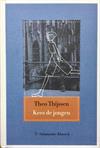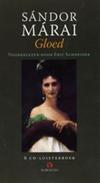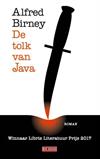
An Instance of the fingerpost
1 journaler for this copy...
Journal Entry 1 by dododumpling from St. Neots, Cambridgeshire United Kingdom on Tuesday, May 24, 2005
February 2006
This has been sitting on Mt TBR for months, and I finally got round to reading it just recently.
This is what Amazon has to say:
An Instance of the Fingerpost is that rarest of all possible literary beasts--a mystery powered as much by ideas as by suspects, autopsies and smoking guns. Hefty, intricately plotted, and intellectually ambitious, Fingerpost has drawn the inevitable comparisons to Umberto Eco's The Name of the Rose; and, for once, the comparison is apt.
The year is 1663, and the setting is Oxford, England, during the height of Restoration political intrigue. When Dr Robert Grove is found dead in his Oxford room, hands clenched and face frozen in a rictus of pain, all the signs point to poison. Rashomon-like, the narrative circles around Grove's murder as four different characters give their version of events: Marco da Cola, a visiting Italian physician--or so he would like the reader to believe; Jack Prestcott, the son of a traitor who fled the country to avoid execution; Dr. John Wallis, a mathematician and cryptographer with a predilection for conspiracy theories; and Anthony Wood, a mild-mannered Oxford antiquarian whose tale proves to be the book's "instance of the fingerpost" (the quote comes from the philosopher Bacon, who, while asserting that all evidence is ultimately fallible, allows for "one instance of a fingerpost that points in one direction only, and allows of no other possibility").
Like The Name of the Rose, this is one whodunit in which the principal mystery is the nature of truth itself. Along the way, Pears displays a keen eye for period details as diverse as the early days of medicine, the convoluted politics of the English Civil War, and the newfangled fashion for wigs. Yet Pears never loses sight of his characters, who manage to be both utterly authentic denizens of the 17th century and utterly authentic human beings. As a mystery, An Instance of the Fingerpost is entertainment of the most intelligent sort; as a novel of ideas, it proves equally satisfying.
It was a wonderful read, with amazing attention to detail. I love the insight it gives into 17th-century life, such as the way medical treatment and scientific experiment evolved, the treatment of women and attitudes to class, and snippets such as the fact that newspapers first became available around this time.
Events surrounding the death of Dr Grove are told from four different perspectives. "The truth" varies from narrator to narrator, and I found myself more willing to believe the story as told by a character I felt some sympathy for. It's a complex book with a tightly woven plot: there's a lot of information to take in, and for that reason it's a book I'd like to come back to at some point.
There are some interesting discussion points here.
I'm going to see if my friend would like to borrow this. We studied A Level Tudor & Stuart History together (covering the period from the accession of Henry VIII to the Restoration of the Monarchy) and it would be interesting to know what she thinks of it.
9 April 2006
Lent to my friend.
This has been sitting on Mt TBR for months, and I finally got round to reading it just recently.
This is what Amazon has to say:
An Instance of the Fingerpost is that rarest of all possible literary beasts--a mystery powered as much by ideas as by suspects, autopsies and smoking guns. Hefty, intricately plotted, and intellectually ambitious, Fingerpost has drawn the inevitable comparisons to Umberto Eco's The Name of the Rose; and, for once, the comparison is apt.
The year is 1663, and the setting is Oxford, England, during the height of Restoration political intrigue. When Dr Robert Grove is found dead in his Oxford room, hands clenched and face frozen in a rictus of pain, all the signs point to poison. Rashomon-like, the narrative circles around Grove's murder as four different characters give their version of events: Marco da Cola, a visiting Italian physician--or so he would like the reader to believe; Jack Prestcott, the son of a traitor who fled the country to avoid execution; Dr. John Wallis, a mathematician and cryptographer with a predilection for conspiracy theories; and Anthony Wood, a mild-mannered Oxford antiquarian whose tale proves to be the book's "instance of the fingerpost" (the quote comes from the philosopher Bacon, who, while asserting that all evidence is ultimately fallible, allows for "one instance of a fingerpost that points in one direction only, and allows of no other possibility").
Like The Name of the Rose, this is one whodunit in which the principal mystery is the nature of truth itself. Along the way, Pears displays a keen eye for period details as diverse as the early days of medicine, the convoluted politics of the English Civil War, and the newfangled fashion for wigs. Yet Pears never loses sight of his characters, who manage to be both utterly authentic denizens of the 17th century and utterly authentic human beings. As a mystery, An Instance of the Fingerpost is entertainment of the most intelligent sort; as a novel of ideas, it proves equally satisfying.
It was a wonderful read, with amazing attention to detail. I love the insight it gives into 17th-century life, such as the way medical treatment and scientific experiment evolved, the treatment of women and attitudes to class, and snippets such as the fact that newspapers first became available around this time.
Events surrounding the death of Dr Grove are told from four different perspectives. "The truth" varies from narrator to narrator, and I found myself more willing to believe the story as told by a character I felt some sympathy for. It's a complex book with a tightly woven plot: there's a lot of information to take in, and for that reason it's a book I'd like to come back to at some point.
There are some interesting discussion points here.
I'm going to see if my friend would like to borrow this. We studied A Level Tudor & Stuart History together (covering the period from the accession of Henry VIII to the Restoration of the Monarchy) and it would be interesting to know what she thinks of it.
9 April 2006
Lent to my friend.
















